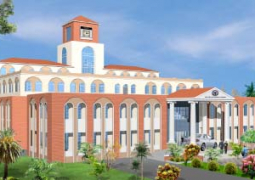We have argued incessantly on this page that agriculture is the backbone of an economy; all else are just superstructures. The base for industrial and technological progress is agriculture.
The great nations of the world have their foundations in agriculture. The United States of America is substantially agricultural; the United Kingdom also thrives on agriculture.
We have over the years laid emphasis on the fact that people should make investment in agriculture a priority.
We made this emphasis because we know that a nation which cannot feed her citizens is doomed. How can a hungry emaciated citizenry be roused to national duty?
Reports about the 2011-2012 farming season failure has generated lots of debate in many corners, and it is an indication that a food crisis appears imminent.
While government has appealed for food aid, it is our view that The Gambia as a country should do all it takes to find a lasting solution for good, as this could aggravate poverty in the country.
Lately, the prices of many commodities have surged exponentially to a point where it threatens to shoot household budgets over the roof.
There is no doubt that the soaring food and energy prices now pose a threat to the fledgling impetus in the recovery of the world economy.
Just think of the income of the pensioner population in this country. Sad though, but it’s next to nothing. They will be much more affected by what is happening now.
To cope with this threatening situation, The Gambia has to increase domestic food production and substitute local foodstuffs for the increasingly costly imported items.
Farmers have to try to expand production, because the jump in the cost of imported food will increase the demand for local food.
Increased production could save foreign exchange, generate employment and improve rural development.
We hope that the agricultural community with the help of the government will rise to the challenge.
“The past may be past, the present we grapple with, but the future we can attempt to change.”
Anonymous




